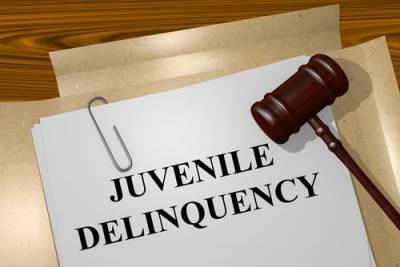Common Questions About Juvenile Arrests
 In Connecticut, anyone under the age of 18 who is accused of committing a crime will generally be arrested and made to appear before a juvenile court to discuss the case. If your family has never before been involved with the law, this whole process can be a terrible and frightening time. An experienced juvenile justice attorney can help answer any questions and alleviate concerns that you might have so that your child can be certain to have their rights protected during the legal process.
In Connecticut, anyone under the age of 18 who is accused of committing a crime will generally be arrested and made to appear before a juvenile court to discuss the case. If your family has never before been involved with the law, this whole process can be a terrible and frightening time. An experienced juvenile justice attorney can help answer any questions and alleviate concerns that you might have so that your child can be certain to have their rights protected during the legal process.
Q: If my child is arrested, do I have any rights during the process?
A: Yes. Parents have a right to be informed about their child’s arrest and are permitted to refuse any interrogation of their children. Arrested juveniles also have a fairly high chance of being released into a parent’s custody unless the alleged offense is very serious (in which case, it will likely be transferred to adult court, where your child will be treated in a similar manner to any other adult offender).
Q: Will my child face a jail sentence?
A: Unlikely, unless the offense is very severe. The juvenile justice system is “lenient” in the sense that it is focused far more on “restorative justice” than the adult system, which generally only seeks to punish. There are two different “tracks” for juvenile arrests in Connecticut - the “non-judicial” track is seen as preferable because the outcome will usually be in the hands of a probation officer or social worker, who will suggest pretrial diversion programs or other consequences that do not necessarily require any entry on your child’s criminal record. The “judicial” track is more like being in adult court, with more severe potential consequences.
Q: Does my child have to be locked up while awaiting their court date?
A: In most situations, no. A juvenile defendant cannot be detained without an order signed by a judge of the Superior Court, and an order will generally not be forthcoming unless it can be shown that (1) there is probable cause to think that the child committed the acts they are charged with; (2) there is no “less restrictive alternative” available; and (3) the child must be held, either because of a threat to public safety or to ensure the child and their parents will appear in court.
Q: Will any juvenile trouble cause problems for my child later in life?
A: Hopefully not! With the right attorney, your child’s case can be negotiated to a point where completion of probation and its conditions will effectively wipe the matter from your child’s record. Juvenile records in Connecticut are confidential, to begin with, but knowing that the charge will be erased if your child completes all the conditions of their probation can ease your mind even more.
Can a Stamford Juvenile Justice Lawyer Help You?
If your child has been charged with a crime, it can be terrifying for your family. An experienced Fairfield County juvenile court attorney from the Law Offices of Daniel P. Weiner may be able to help you. Attorney Weiner has years of experience in this type of case and is ready to try and help your family through what can be a confusing and complex process. Contact our office today at 203-348-5846 for a free consultation.
Source:
https://portal.ct.gov/OPM/CJ-JJYD/Main-Navigation/Juvenile-Justice-System







